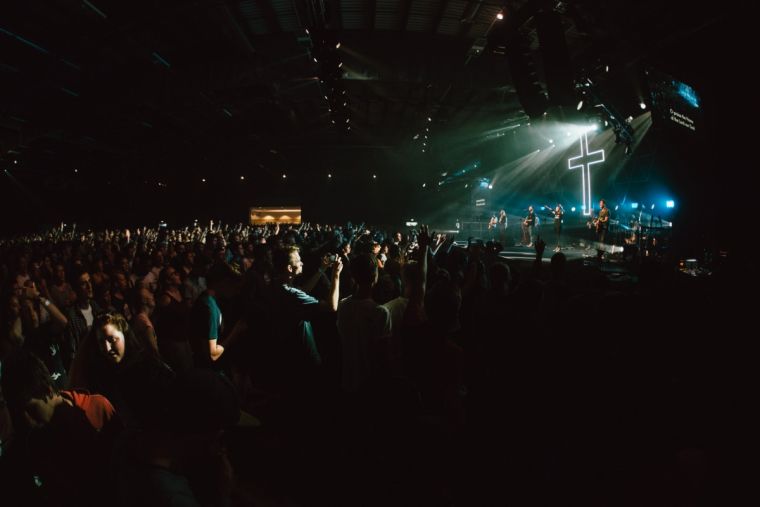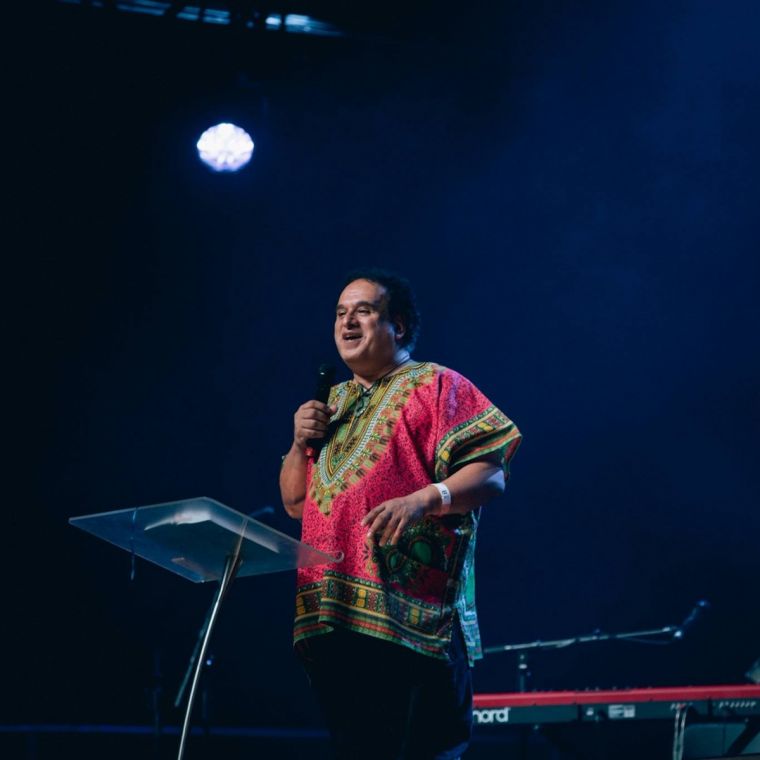A legacy of souls: Why we should be grateful, not sad as Soul Survivor closes
It's the news that no one in UK youth ministry ever wanted to hear, and the announcement we all knew one day would come. Soul Survivor, the summer festival which has become a centrepiece of the Christian youth work calendar, is to zip up its tents for the final time in 2019, after the organisers said they believed that God was calling on them to close.
Much will be said and written over the coming weeks about the event, which has run across several locations every summer since 1993, and some will undoubtedly express sadness and disappointment at the decision. But there's also much more to say.

Of course, as founder Mike Pilavachi has already expressed in his official statement, sadness will be a big part of the story. Young people who have grown to love the event will grieve its passing, while thousands of youth leaders will feel at least a little concern at the removal of a central column of their annual evangelism and discipleship strategy.
Before we even get to all that however, it's important that we celebrate the truly extraordinary achievements of the long-running festival. While it has always attracted its fair share of criticism, Soul Survivor is arguably the primary location at which teenagers have been presented with an opportunity to hear and respond to the Christian message in Britain over the last quarter of a century. Repeatedly, the numbers of young people who have made a 'faith commitment' at the events has neared (and on occasion even topped) 2,000 in a year. In the wider context of a UK where youth church attendance has been falling steadily, that consistent number has been nothing short of a phenomenon.
Not only that, but the event has invited young people to participate in worship, Bible study and prayer in their tens of thousands each year. Young people have learned spiritual practices, and thanks to initiatives such as the festivals' bespoke Bible in a Year resource, taken them home and put them into action all year round. Teenagers have been inspired at the events to run mission activities in their home towns, or participate in city-wide initiatives such as 2004's 'Soul in the City' mission, which drew 20,000 young people to London. In short, Soul Survivor has inspired generations of teenagers to take the Christian faith seriously, and to put it into action.

It has also been partly responsible for demystifying the work and gifts of the Holy Spirit among those generations. Pilavachi's commitment to 'naturally supernatural' ministry has influenced thousands of young people and leaders who now feel comfortable praying for healing, prophecy and other biblical gifts. The events have helped to shape the theology of the modern church.
They've also profoundly influenced the leadership of that church, and indeed provided some of its most influential leaders. Alongside Pilavachi, the events launched the ministries of worship leaders including Matt Redman, Tim Hughes and Ben Cantelon, and made a name for evangelist JJohn. At the same time, the event, alongside its umbrella ministry and closely-tied Watford church, has perhaps become the most trusted and well-known brand in British youth ministry.
None of which ever mattered to the team running the event, whose success was largely due to a simple passion to see young people know Jesus. And speaking as a youth leader who has been involved in taking countless groups to the event over the last two decades, I can attest that in so many cases, this is exactly what they achieved. Year after year I've seen teenagers profoundly affected by an initial encounter with God at Soul Survivor, and time and again I've seen that translate into real, long-term life change.
In fact, I experienced that change from an even closer vantage point. I attended my first Soul Survivor event as a teenager back in 1995, and having recently come to a belief in God, experienced him tangibly there for the first time. A combination of the sense of love and acceptance I felt at the event, and the exposure I received there to the unfiltered power of God, was probably the clearest reason that I decided to commit myself all-in to the Christian faith. And here's what's really amazing: over the last years I've continually bumped into people with exactly the same story. Soul Survivor was a modern thin place; somewhere that the power and presence of God became real, even to the most cynical and worldly-wise young person.
The event's oft-criticised altar calls, which give young people an opportunity to 'become a Christian', are often concluded with an excited reflection from the host that 'there's a party going on in heaven right now'. And while undoubtedly there were many who stood up and 'committed' because of the hype and excitement of the moment, there are literally tens of thousands of people who are Christians today precisely because they were invited to respond at one of the festivals. That heavenly party is enormous, long-running and genuine, and that legacy of souls is perhaps the most remarkable thing on which to reflect as we finally hear of the event's closure.
There will be a time to mourn Soul Survivor, and a time of course to speculate about what will come next to fill the yawning gap it leaves in the UK church. But that time has not yet come. First, we should celebrate the incredible things that God has achieved through this extraordinary ministry, and give thanks. For thousands upon thousands of us, it's the reason we got to know him in the first place.
Martin Saunders is a contributing editor for Christian Today and the deputy CEO of Youthscape. Follow him on Twitter @martinsaunders.











